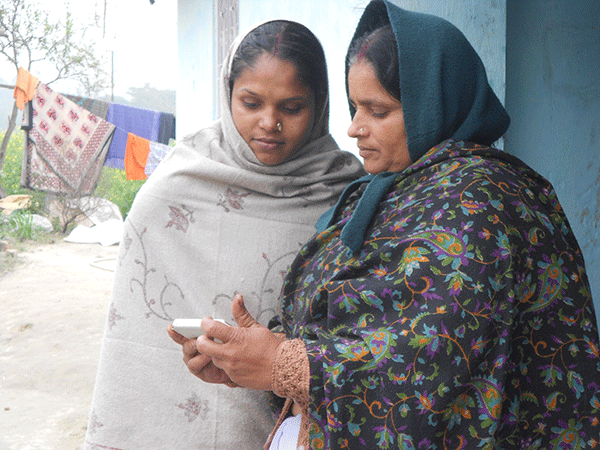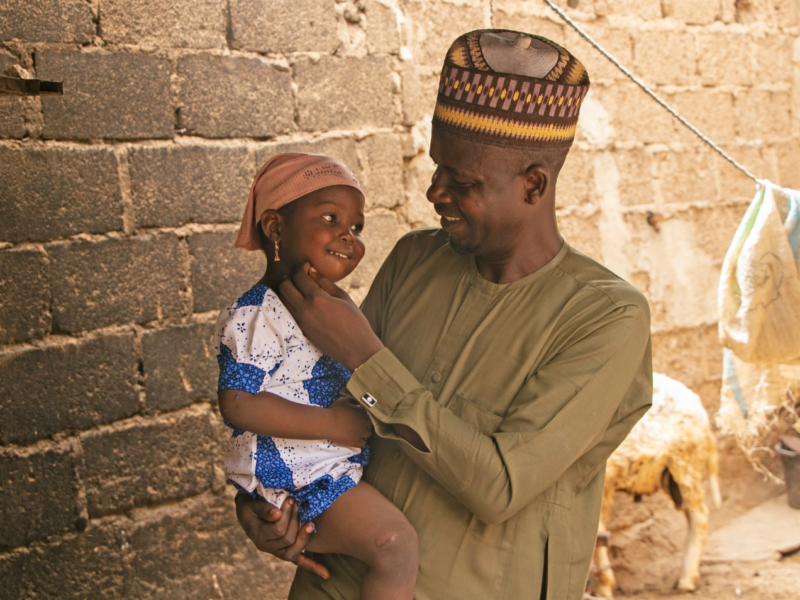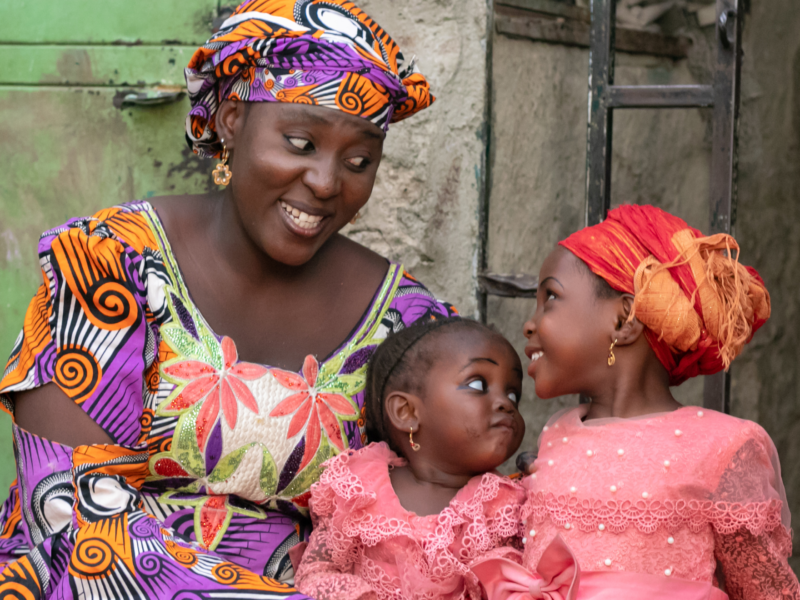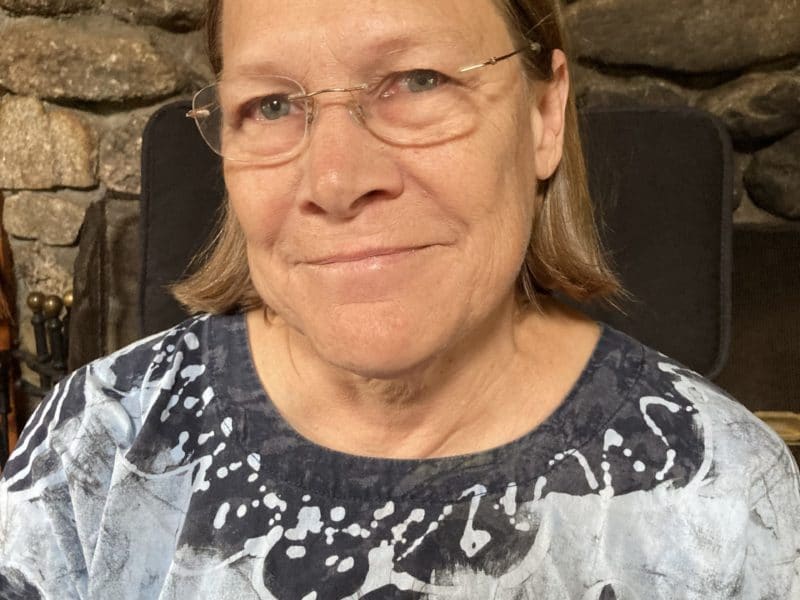With an abundance of inexpensive smart phones but little internet connectivity, India is ripe for digital invention. Enter Gyan Jyoti (Hindi for “Light of Knowledge”), an app that gives rural health workers a portable library of family planning materials to study and share with their clients.
Both traditional (no internet necessary in the field) and innovative, the app is loaded with entertaining and persuasive videos, technical information and other family planning content. Gyan Jyoti also collects client data. And yet, “you only need a connection once to download the app,” says Johns Hopkins Center for Communication Programs Systems Development Manager Mike Bailey.
As part of Project Ujjwal, government-trained frontline health workers (called ASHAs) carry the phones into the homes of eligible couples in rural Bihar. Although workers have little education, Gyan Jyoti has allowed them to become mobile “information hubs” for community members considering a family planning method and it offers motivation to those who are hesitant. The app supplies ready access to answers to technical questions on family planning methods. It also helps dispel myths about methods and break down social taboos.
Health workers say the app gives them confidence and increases their credibility in communities where fears and myths about side effects are a formidable barrier to contraceptive use. “ ‘Gyan Jyoti’ app made me smart and I get confidence when I visit my area for counselling,” says Anita Kumari, an ASHA who has made approximately 600 home visits and used the app to convert 70 clients to different family planning methods in the last six months.
The use of motivational and persuasive content delivered through mobile phones was tested previously in the Indian state of Uttar Pradesh under the Urban Health Initiative (UHI), says CCP Asia Team Lead Sanjanthi Velu. “We provided the content on SD cards to community health workers (CHWs) which they uploaded to smart phones,” she says. “We saw that this worked! The CHWs felt more confident and empowered with the information. It was a big hit as well with community members who wanted to transfer the content to their phones via bluetooth to show it to their spouse and start a discussion about family planning.”
But the SD card had limitations. Sanjanthi says, “There was no way for us to track which videos were being shown, or to gather information about which clients adopted a method after expousre to the content.We needed an app that can do all of this and also be a learning tool for the CHWs.”
During a chance conversation in CCP’s Baltimore office, Mike told Sanjanthi about the Nigeria Urban Reproductive Health Initiative (NURHI) interactive Distance Education Application (iDEA) app. He adopted the app from OppiaMobile with support from Digital Campus to train 250 midwives. NURHI is a six-year, CCP-led family planning program in six Nigerian cities that is designed to improve the quality of family planning services and increase demand for family planning.
Launched by NURHI in 2013, the NURHI iDEA app provides a range of instructional material with a focus on videos and exercises that help make midwives aware of and overcome their biases toward unmarried or very young clients. Based on feedback from the midwives, the app successfully enhanced their ability to counsel their clients and treat them fairly.
Working with CCP program specialist Lindsey Leslie, Mike adapted the NURHI iDEA to the needs of Project Ujjwal. In response to feedback from the ASHAs in India, Lindsey used Moodle, an open source content management platform, to assist the Project Ujjwal team in reorganizing the content by contraceptive method instead of life stage to make it more intuitive. “It was easier and less confusing for the ASHAs to navigate the app by method,” she says. Lindsey also oversaw the app’s translation into Hindi.
On a house visit with a health worker in Bihar, Lindsey saw the app in action. Both the couple and extended family “gathered around to watch the IUD video. The health worker was able to talk to the pregnant woman and her husband and also the in-laws and cousins.”
Soon the app will travel to Pakistan where it will be modified and tested. This time, CCP will create a mobile learning and counseling support tool for women health workers addressing maternal and child health issues in rural Pakistan.





